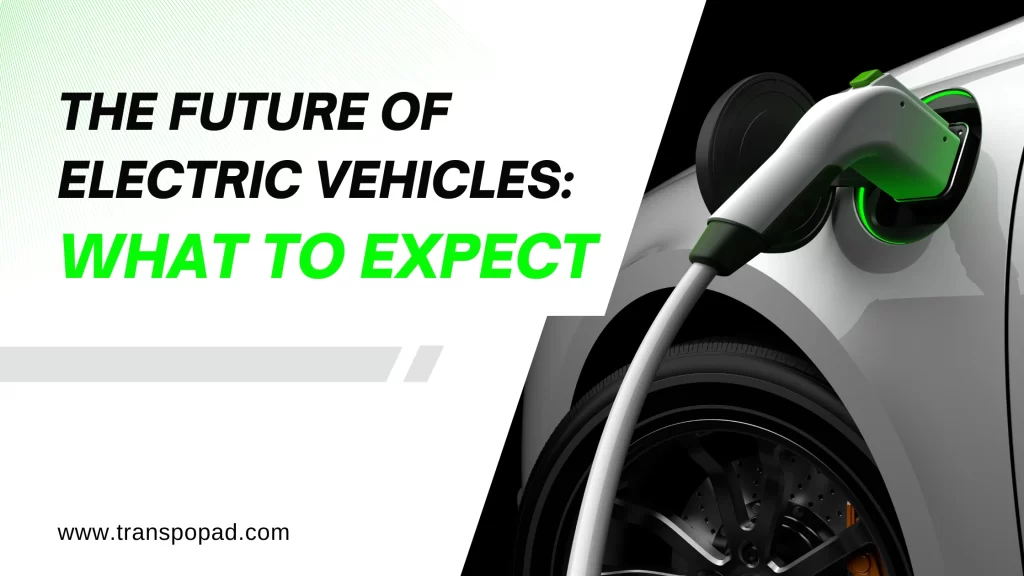
In recent years, the automotive industry has witnessed a monumental shift towards sustainable and eco-friendly transportation solutions. One of the most significant advancements in this domain is the rapid evolution of electric vehicles (EVs). As we stand on the cusp of a transportation revolution, it’s crucial to delve into what lies ahead for electric vehicles and the landscape they will shape.
Table of Contents
- Introduction
- Rapid Technological Advancements
- Economic Viability of Electric Vehicles
- Charging Infrastructure: A Key Player
- Environmental Impact and Sustainability
- Consumer Adoption and Behavior
- Autonomous Electric Vehicles
- Government Policies and Incentives
- Electric Trucks and Commercial Transportation
- Electric Vehicle Batteries: Innovations and Breakthroughs
- Challenges and Hurdles to Overcome
- Collaboration between Industries
- The Role of Renewable Energy
- Future Designs and Models
- Conclusion
- FAQs (Frequently Asked Questions)
Introduction
The automotive landscape is on the cusp of a significant transformation, with electric vehicles taking center stage. EVs are no longer a futuristic concept; they are the present reality and the future of transportation.
1. Rapid Technological Advancements
The electric vehicle sector is experiencing a surge in technological innovations. From battery efficiency to charging speed, cutting-edge advancements are propelling EVs to new heights of performance and accessibility.
2. Economic Viability of Electric Vehicles
As battery costs decrease and manufacturing processes become more streamlined, the economic appeal of electric vehicles is becoming evident. Lower long-term operational costs and potential savings on maintenance make EVs an attractive option for consumers.
3. Charging Infrastructure: A Key Player
The expansion of charging infrastructure is crucial for the widespread adoption of electric vehicles. The development of fast-charging networks and convenient charging solutions will play a pivotal role in shaping the future of EVs.
4. Environmental Impact and Sustainability
Electric vehicles contribute to a cleaner environment by producing zero tailpipe emissions. The shift to EVs is a significant step towards reducing air pollution and curbing the effects of climate change.
5. Consumer Adoption and Behavior
Understanding consumer preferences and behaviors is essential for the successful integration of electric vehicles into mainstream society. Education and awareness campaigns can influence the choices consumers make.
6. Autonomous Electric Vehicles
The convergence of electric and autonomous vehicle technologies opens up a realm of possibilities. Self-driving electric cars could redefine urban mobility and enhance road safety.
7. Government Policies and Incentives
Government support, through incentives and favorable policies, is instrumental in accelerating the adoption of electric vehicles. Subsidies can make EVs more accessible and affordable for the general population.
8. Electric Trucks and Commercial Transportation
The future of electric vehicles extends beyond passenger cars. Electric trucks and commercial vehicles have the potential to revolutionize the logistics and transportation industries, reducing emissions and operating costs.
9. Electric Vehicle Batteries: Innovations and Breakthroughs
Advancements in battery technology are at the core of electric vehicle progress. From longer ranges to faster charging, battery innovations are driving the evolution of EVs.
10. Challenges and Hurdles to Overcome
While the future of electric vehicles looks promising, there are challenges to address. Battery disposal, charging infrastructure disparities, and production sustainability are areas that require careful consideration.
11. Collaboration between Industries
The shift to electric vehicles necessitates collaboration between various industries, including automotive, energy, and technology. Partnerships can lead to holistic solutions and a more seamless transition.
12. The Role of Renewable Energy
The integration of renewable energy sources, such as solar and wind power, into electric vehicle charging infrastructure enhances the sustainability of EVs and reduces their carbon footprint.
13. Future Designs and Models
Electric vehicles offer designers and engineers newfound creative freedom. Sleek designs, innovative interiors, and enhanced user experiences are on the horizon.
Conclusion
The future of electric vehicles is a tapestry woven with innovation, sustainability, and transformative potential. As the automotive landscape embraces electric mobility, we stand at the precipice of a cleaner, greener, and more connected future.
FAQs (Frequently Asked Questions)
1. Are electric vehicles truly emission-free?
Electric vehicles produce zero tailpipe emissions, making them a cleaner alternative to traditional internal combustion engine vehicles.
2. What is the biggest challenge facing electric vehicle adoption?
One significant challenge is the development of a robust and widespread charging infrastructure to support the growing number of EVs on the road.
3. How do government incentives impact the electric vehicle market?
Government incentives, such as subsidies, can significantly lower the upfront cost of electric vehicles, encouraging more consumers to make the switch.
4. Will electric vehicles make traditional gasoline cars obsolete?
While electric vehicles are gaining momentum, it’s unlikely that gasoline cars will become obsolete in the near future. Both options may coexist as consumer preferences evolve.
5. What role do automakers play in shaping the future of EVs?
Automakers play a crucial role in driving innovation, design, and accessibility of electric vehicles, influencing how quickly they become a mainstream mode of transportation.